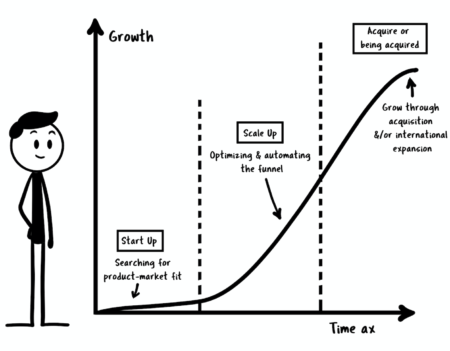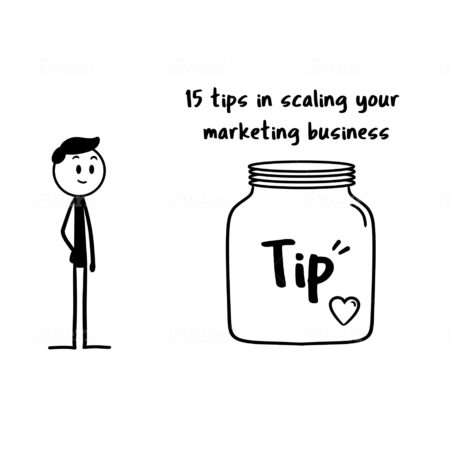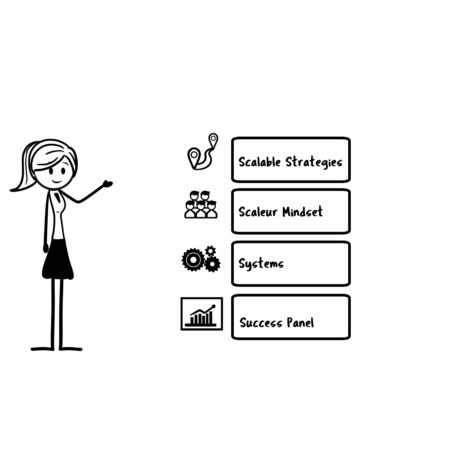How to Create a Flexible Strategic Roadmap

Having a proper strategic roadmap is the key to scaling successfully. After you’ve collected insights about your business, gotten your team together, and evaluated your marketing business from top to bottom, it’s time to start building a strategic roadmap for scaling.
It’s very much like taking a family road trip: You need a map of where you’re going before you start gassing up the car. The strategic roadmap for your business has to include the milestones that you want to achieve at reasonable intervals: here’s when we hire a digital marketing manager; here’s when we expand our marketing efforts. It should also be flexible enough to accommodate the unknown and unexpected.
Keep your scaling roadmap at the forefront of every decision you make. If a new move or decision doesn’t contribute to hitting your strategic milestones, don’t spend money just because you can.
Remember: Every decision you make while learning how to scale your business should be aimed at building long-term growth. Keep checking in monthly to evaluate whether revenue is on track, your operating costs are staying low, and your teams are achieving key initiatives.
The Three Phases of Scaling Up

There are three main phases to scaling up (see above) that you can use as touchstones for progress. In Phase 1, you start a company and make sure you have a product fit. At Phase 2, once you have the right product-market fit and you have scalable systems, scaleurs, a strategy, and a success panel in place, with a steady income stream, it is time to start to scale up. Finally, in Phase 3, you acquire a new business, you are acquired by another larger company and/or you expand internationally.
The Three-Part Foolproof Marketing Roadmap
Once you pass the startup phase, it is time to build your roadmap to success and your scalable strategy. When I start at a company, I start drafting the marketing strategy plan, based on these three parts.
1. What is the current blueprint? What does the company have as of today in terms of:
-
- Tags & Pixels — do we have the right tracking systems in place and can we trust the data? Tags will help personalize, target, track, analyze, and report on data/performance of visitors to our website.
- Website Performance — is the website optimized enough to convert leads into customers?
- How we are ranking in Google? How do customers find us?
- Once at the website, how easy is it for prospective customers to navigate it and find their way? Do we have the right content, and do we bond with them?
- How can we become friends with our visitors and convert them into customers once they fill in the contact fields?
- Email marketing — email is still the #1 communication channel. Do we have an email plan in place? What does our lead magnet — something we give for free in exchange for their contact details — look like?
- Social media — are we putting our message where our audience hangs out most of every day? Are we using it for both organic (free) and paid advertising?
- PPC (pay per click) — are we using paid tactics to gain visibility? Do we have the right keywords in place to be found on the web?
- Dashboard — how do we visualize our results to make better decisions?
2. What are the must-win battles you want to achieve in a given year?
What are the success drivers you want to see at the end of a successful year? Thinking about whether you have a great foundations in place. Plan to increase the customer experience by X% and grow your leads by Y%.
3. Draw up a plan with milestones of what to achieve by when.
This will make your objectives as smart as possible. Set them for a whole year, but cut them into monthly and even weekly goals to make them easier to manage and achieve.
Conclusion
Before moving ahead, make sure you also understand your organization as a whole. Ask yourself these questions:
- What is the budget for your team?
- Which are the strengths and weaknesses of the company and where do you want to focus when scaling up?
- What do your customers need and how you can delight them?
In future articles, we’ll cover budgets, understanding customer needs, and more.
This is an edited excerpt from our new book! Get yourself a copy today here.
Become a Successful Scaleur
Scaling is a strategy that can only be mastered by a scaleur who is a dedicated learner and considers real-time business priorities. I hope the article above has helped! Marketing Scaleurs is a scaling company that helps entrepreneurs scale their marketing efforts. We’re experts in growth marketing, product development, and more, creating custom growth plans for startups, entrepreneurs and scaleurs in order to help them gain traffic, generate leads and increase their revenue.
If you want traffic, leads and sales, get in touch and you’ll start getting results in no time!










